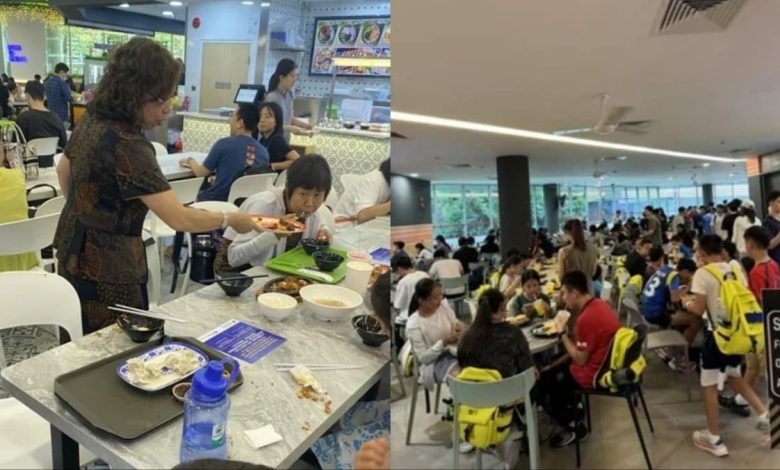NUS to introduce tour bus registration, visitor access system in ramped up measures to manage tourist crowds

TOWN HALL ATTENDED BY 200 STUDENTS
Assoc Prof Goh told reporters about the new measures after a two-hour town hall organised by the NUS Students’ Union (NUSSU). University representatives fielded questions from students on overcrowding and tourists entering residential spaces.
NUSSU said around 200 students attended the town hall, with most in the NUS University Hall Auditorium, while around 50 watched a livestream from a lecture theatre.
The student union called for a town hall to address the discontent of the student population with the influx of tourists that led to canteens, shuttle buses and libraries being “flooded”, NUSSU said in a statement last week.
Earlier this month, complaints about badly behaved tourists emerged online, with some Reddit users suggesting that NUS restrict access to the university because of disruptive tourists.
Assoc Prof Goh said the town hall was “very constructive” and thanked the union for giving the university a platform to explain its actions.
One other measure announced was that students running tours on campus will need to attend training and be certified as “registered student docents”.
These student docents must reserve slots for any tours they wish to conduct, and they will wear a “special ID” to make them easily identifiable.
Unlicensed tour guides who conduct tours in NUS will be reported to the authorities.
“In our engagement with NUSSU and after hearing student feedback, we acknowledge that more needs to be done and will be introducing a number of new, longer-term measures to address the challenges around the high tourist traffic on campus during peak travel seasons,” the circular said.
NUSSU president Huang Ziwei, who graduated this year and will be handing over his duties in a month’s time, said students who attended the town hall were collaborative but there were tense moments.
“I think (the) students have very strong opinions,” he said, noting that some of the issues with tourist crowds have been persistent.
“Of course, they want to hear a very concrete solution on the spot – give me a date, when can it be done.”
But at the same time, if the management were to give any guarantees, they may end up being “empty promises”.
TRESPASSING CONCERNS
Some students also asked about visitors going into residential halls where students live. Mr Huang said this is a problem for residences that are not gated, especially if they are near UTown, which is popular among tourists.
One student who declined to be named said her friends have seen tourists in their residential halls – some peered into rooms and took photos.
Even for residences that require access passes, some tourists tailgated students to enter the restricted areas, she said.
Mr Afiq Ihsan, who is the incoming president of Raffles Hall, said one resident found a group of 10 tourists on the second floor of one of the blocks, where female freshmen students stay.
During the town hall, he asked the university management about the plans for more “open-concept” residences such as Raffles Hall, Ridge View Residential College and King Edward VII Hall.
He said the management mentioned the possibility of restricting access for some hours, although it was unclear whether it would be through stationing staff at the hall or by building barriers.
The issue with tourists on campus first emerged in late January and resurfaced in recent weeks. Major concerns raised in the town hall were common pain points such as competing with tourists for space in canteens and on buses.
NUS is not the only Singapore university dealing with such issues with tourist crowds.
Earlier this year, Nanyang Technological University implemented several measures, including imposing an entry fee on tourists and requiring online registration for tour groups.





